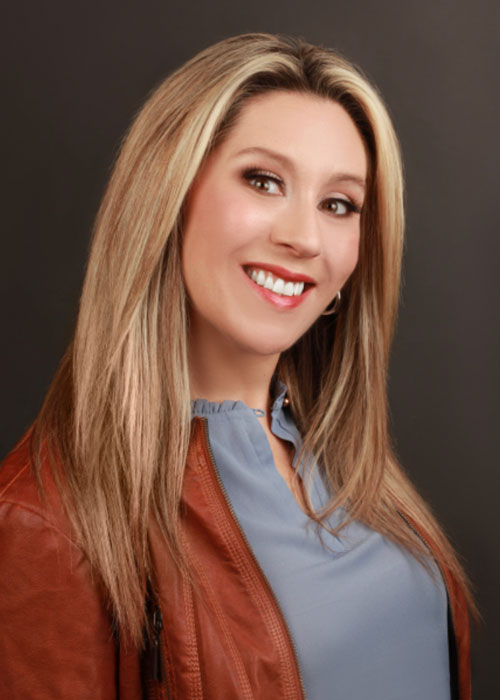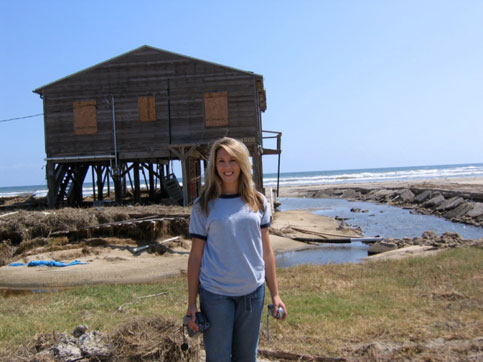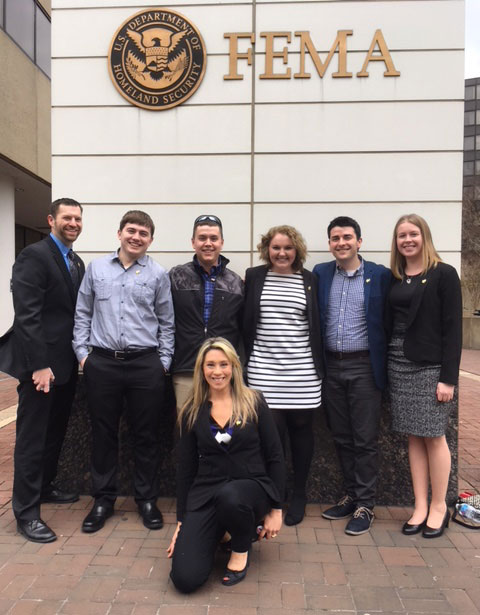Female Power: UA professor looking forward to FEMA’s first female administrator

Dr. Stacy Willett
When Deanne Criswell was announced as President Joe Biden’s nominee to lead the Federal Emergency Management Agency (FEMA), it was a major stride in the field of disaster science. Criswell, the current commissioner of the New York City Emergency Management department, will become the first female administrator of FEMA in the organization’s 41-year history if confirmed by the U.S. Senate. And to The University of Akron’s (UA) Stacy Willett, Ed.D. — the nation’s first female professor of emergency management and homeland security — that’s an important barrier to break.
“When I realized Deanne Criswell was going to become the next FEMA administrator, it just clicked that the history books were going to be different,” says Willett. “The chapter on FEMA history was going to be different in the classroom for the first time.”
Willett has been teaching FEMA history in her classroom at UA since August 2001 when she was hired as an assistant professor — just one month before the Sept. 11, 2001 attacks changed the course of disaster response. In 2009, she was promoted to a full professor position, becoming the first female in the nation to hold the title in higher education’s emergency management and homeland security discipline.
“Being the first female professor of emergency management, I had quite an interesting early career to wade through,” Willett says. “Being an early female in a male-dominated field is not for the weak. It was one of those ‘oh my gosh, we are finally here’ moments.”

Dr. Stacy Willett conducting field research in Texas during Hurricane Ike in 2008.
The granddaughter of Lebanese immigrants, Willett is a first-generation college student. Among her degree earned from UA, Willett holds a Doctor of Education in Educational Leadership with a concentration in Social Psychology, Master of Arts in Urban Studies, Bachelor of Science in Technical Education and Associate of Applied Science in Environmental Health and Safety.
At UA, Willett teaches courses on such topics as crisis leadership, disaster vulnerability and behavior, and disaster recovery. In addition to her role as professor, she serves as the acting director of the School of Disaster Science and Emergency Services, director of the Center for Emergency Management and Homeland Security Police Research and faculty advisor to the International Emergency Management Student Association-University of Akron.
Outside of academia, Willett has conducted on-scene research at such disaster sites as the United Airlines Flight 93 crash on Sept. 11, 2001 near Shanksville, Pa.; the Alrosa Villa nightclub shooting in Columbus, Ohio, in 2004; and Hurricane Ike in 2008.
Q & A with Dr. Willett
What interested you about working in the emergency management field?
“I started off in environmental health and safety which is a closely related field before emergency management became an academic degree. I liked keeping people safe, learning to balance risks and hazards and take precautions so the company, people, and the surrounding community would stay safe. That background just expanded into larger perceptions of all hazards planning for disasters. It was a very easy transition into emergency management.”
Does the emergency management field, including the academic side, lack a strong female presence?
"Overall, yes. It is getting better by large stretches. The academic females have really come out swinging. They are doing great work that is undeniable in recognition. The practitioner side is slower to rollover, but it is happening. When I started 20 years ago, there was honestly no diversity in the practitioner community. It was a sea of retired males that had picked up Emergency Management as a second job later. Now, it is full of age-diverse people and females are starting to fill the slots more as well.”
What advice do you have for high school students interested in studying emergency management?
“Keep an open mind, and view all of the subjects that relate to emergency management, such as history, social studies, psychology, government and science, and dig into them a little harder. If you have a passion in an area that fits emergency management, make that your specialization in college, too. Build on emergency management skills early — organization, group projects, time management, speaking, planning ahead and good writing. Many students don’t link the soft skills education teaches with the knowledge skills. In emergency management you will need all of them. If you want to make a difference and want to help others, you already have the most important piece of emergency management.”

In 2018, University of Akron Emergency Management and Homeland Security senior students participated in a travel team, spending a day assisting with an AT&T disaster exercise and another day at the FEMA headquarters in Washington, D.C. (Dr. Stacy Willett is pictured center front.)
In your case, why teach emergency management rather than work for disaster response organization like FEMA?
“Why not work for FEMA? Maybe I will one day post-UA. I am beyond thankful for being able to do what I do at The University of Akron. Students make my entire day light up. You can have a vanilla day and walk into a classroom and everything changes. The energy, the personalities, the laughter and jokes. The hope and bright eyes and smart solutions that come from students makes this, literally, the best most rewarding career on the planet. There is nothing else I would rather do, nowhere I would rather be than to exchange ideas with the future of emergency management.”
Do you hope you can inspire your female emergency management students to become leaders or educators in the field?
“I hope I inspire even half of the measure my students inspire me. I hope they see me as someone passionate and fearless that believes they are the change agents needed in the world. They want to help others, they want to do good in the world, they want to make a difference. They remind me to not get discouraged and keep forging ahead. My students and graduates are honestly the most incredible people imaginable. I am also very cognizant now at mid-career that almost more importantly my students need me to be inspirational, excited, mentoring, and reassuring. I have had females say, ‘I want to be like you,’ but I have also had males say, ‘I want to be like you,’ and that says how far we have come in this field.”
Related:
- School of Disaster Science and Emergency Services
- Bachelor of Science degree in Emergency Management and Homeland Security (EMHS)
Media contact: Alex Knisely, 330-972-6477 or aknisely@uakron.edu.
